Unpublished Opinions
Having conducted research for some of North America’s leading corporations and advocacy groups, we deliver global research capacities with the attention to detail and focus of a boutique firm. We have the capacity to conduct surveys, focus groups (on- and offline), membership surveys, elite and stakeholder consultations, and build online research communities. Our team combines the experience of our Chairman Bruce Anderson, one of Canada’s leading research executives for two decades, with the energy, creativity and research expertise of CEO David Coletto, PhD. We all value integrity, hard work, and creativity believing good research insights come from an intense focus on our clients, rigourous methods, and occasionally challenging convention. Whether it is a public opinion study on a challenging issue or consumer research on likelihood to recommend, our team has the experience and energy to deliver deep insights on-time, on-budget, and with creative perspective. - See more at: http://abacusdata.ca/about/#sthash.euNpekw1.dpuf
Public Opinion Poll: Canadians Look into the Future

By Bruce Anderson & David Coletto
ABACUS DATA
In our recent nationwide survey, we asked Canadians to tell us whether they thought a series of scenarios were likely or unlikely to transpire over the next 10 or 20 years.
We are releasing the results over the next few days, grouping some items together for ease of presentation.
When it comes to our media and political life:
• The majority (56%) think it’s likely that Canada will have a gay Prime Minister within the next ten years. Almost as many (44%) say its likely that a Muslim will lead one of our major political parties.
• Half (51%) think there will be no more printed newspapers and 22% think there will be no more national news broadcasts on TV.
• 7% think Alberta will separate from Canada (11% in Alberta), and 18% think Quebec will separate (20% among Quebecers).
• 46% believe that women will have more power and influence than men in Canada, slightly higher among men (49%) than among women (44%).
Comparing views across political lines, a few observations:
• New Democrats are more likely to believe that there will be a gay PM and a Muslim leader
• Liberals are more likey to believe women will have more influence than men.
• 62% of Liberals foresee no printed newspapers, compared to 51% among Conservatives.
When it comes to global affairs:
• Two out of three (66%) think Canada will play a more important role in the world.
• 42% think the US will play a smaller role in the world.
• 41% think the EU will break up.
• 23% think China will be a democracy.
• 11% expect there will be a durable peace in the Middle East.
• 9% think Canada and the US will be one country.
• 7% think a tunnel will connect North America and China.
Again, looking at results across party lines:
• Liberals are most likely (83%) to say Canada will play a more important role, but majorities of each parties’ supporters feel this way.
• There were fewer differences across party lines on the other questions.
Comparing Outlook for 10 years and 20 years
Half our sample was asked the likelihood that certain events would occur in 10 years while the other was asked about a longer time horizon of 20 years. Some findings:
• 62% thought it was likely that there would be no printed news papers in Canada in 20 years compared to 51% in a 10 year period.
• 54% thought there would be a Muslim major party leader in 20 years compared to 44% who said that would happen in 10.
• 75% believed Canada will play a more important role in the world 20 years from now, 65% felt the same in 10 years.
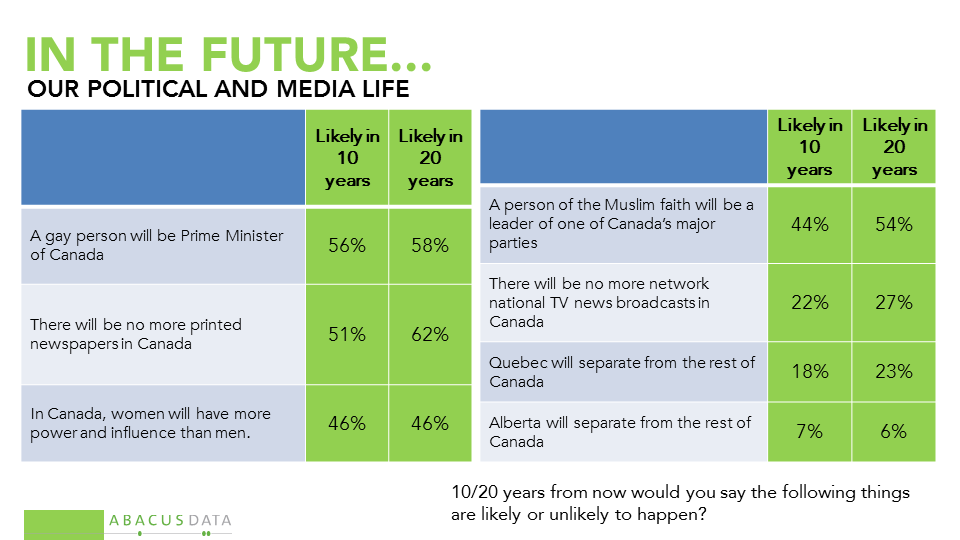
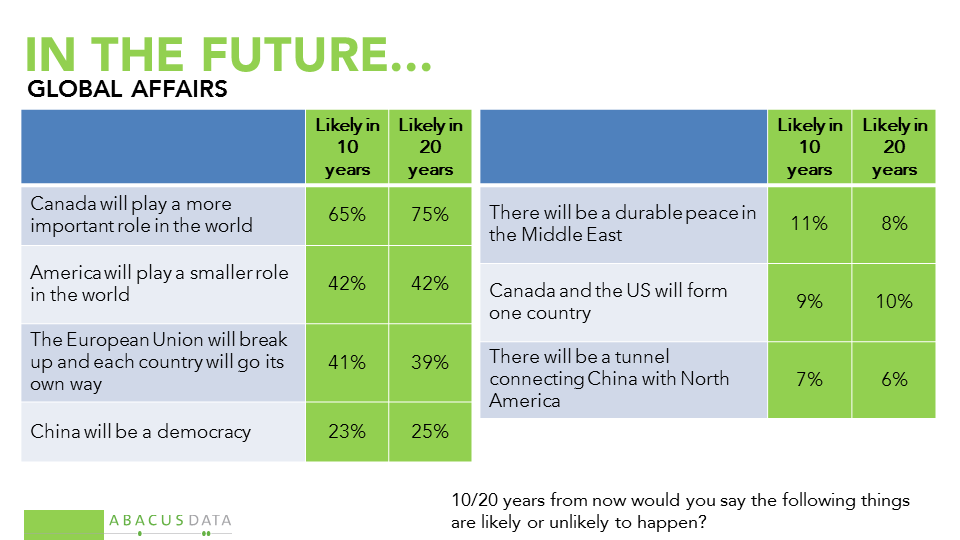
THE UPSHOT
Bruce Anderson: “The numbers tend to speak to an optimism about the country and a comfort with our values. We don’t expect our country to break up, or merge with the US, and we do expect it will have more influence in the world.
There is uncertainty about the course of global geopolitics, including the future of China, the US, and the EU, but pessimism about peace in the Middle East.
In terms of our own domestic politics, the numbers signal at least some confidence that bias-based barriers to high office are limited and possibly reducing over time.”
Our next release will explore our expectations about health, life, and technology.
METHODOLOGY
Our survey was conducted online with 1,500 Canadians aged 18 and over from June 14 to 16, 2016. A random sample of panelists was invited to complete the survey from a large representative panel of over 500,000 Canadians.
The Marketing Research and Intelligence Association policy limits statements about margins of sampling error for most online surveys.
The margin of error for a comparable probability-based random sample of 1,500 is +/- 2.6%, 19 times out of 20.
The data were weighted according to census data to ensure that the sample matched Canada’s population according to age, gender, educational attainment, and region. Totals may not add up to 100 due to rounding.
Abacus Data Inc.
We offer global research capacity with a strong focus on customer service, attention to detail and value added insight. Our team combines the experience of our Chairman Bruce Anderson, one of Canada’s leading research executives for two decades, with the energy, creativity and research expertise of CEO David Coletto, PhD.
Read Part II: Public Opinion Poll: The Future As Canadians See It - Work, Health & Technology

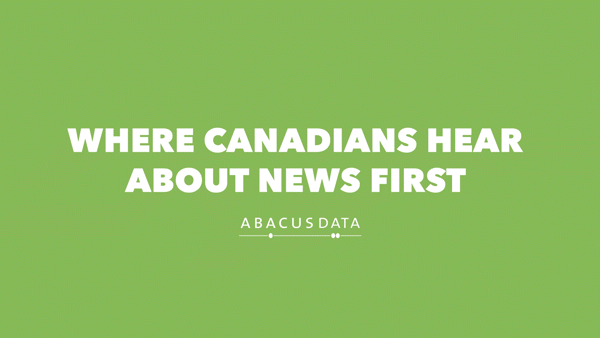
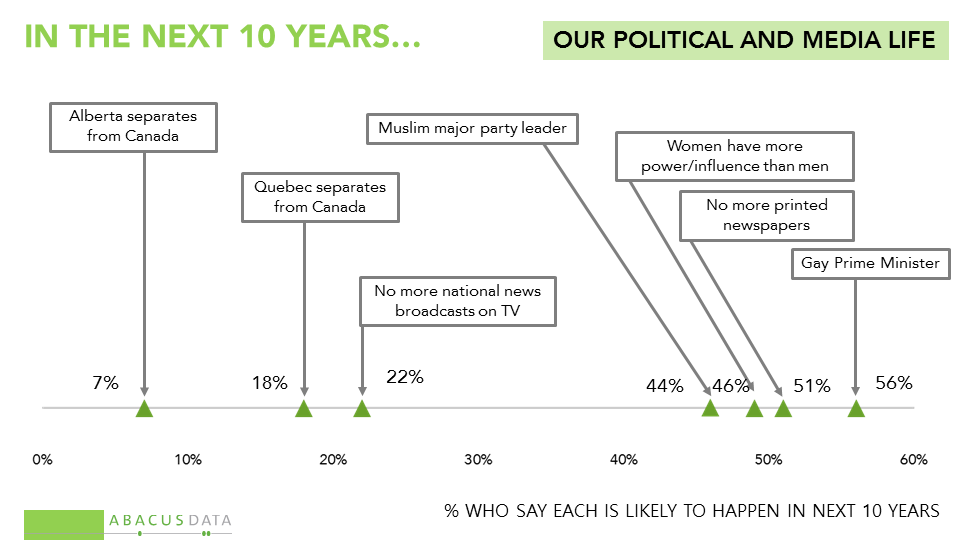
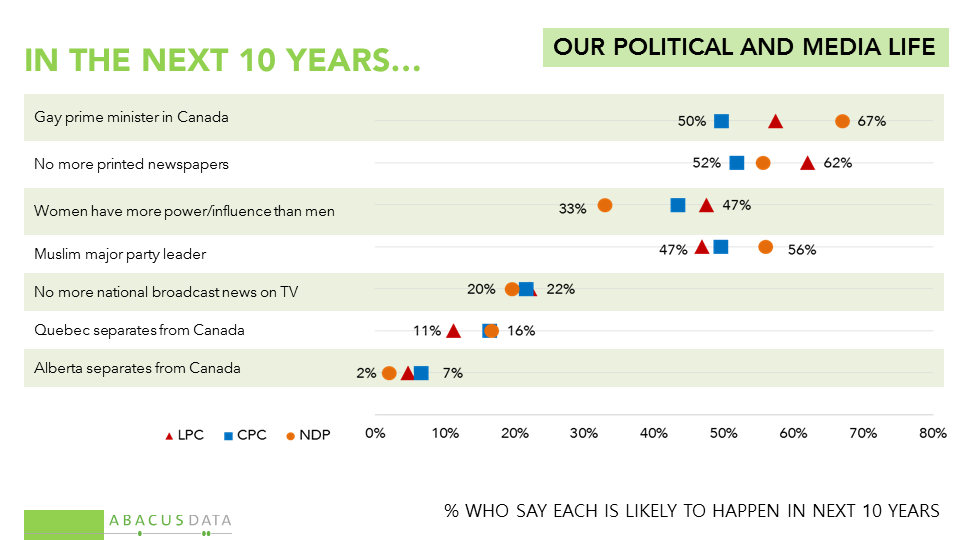
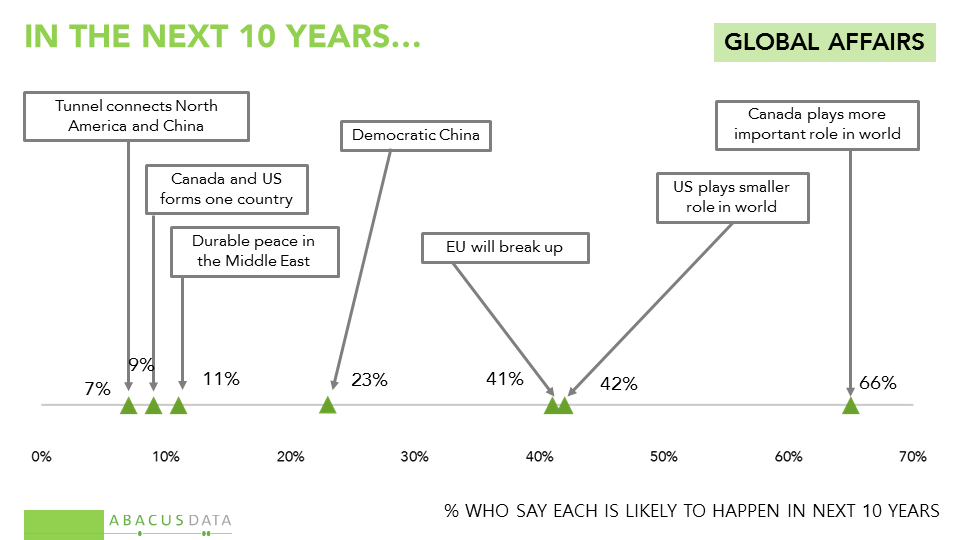
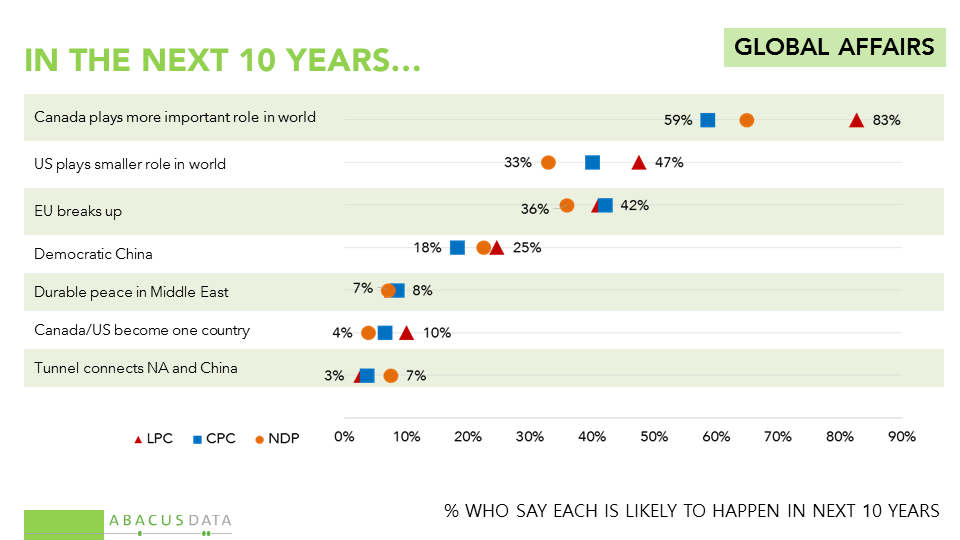

Comments
Be the first to comment